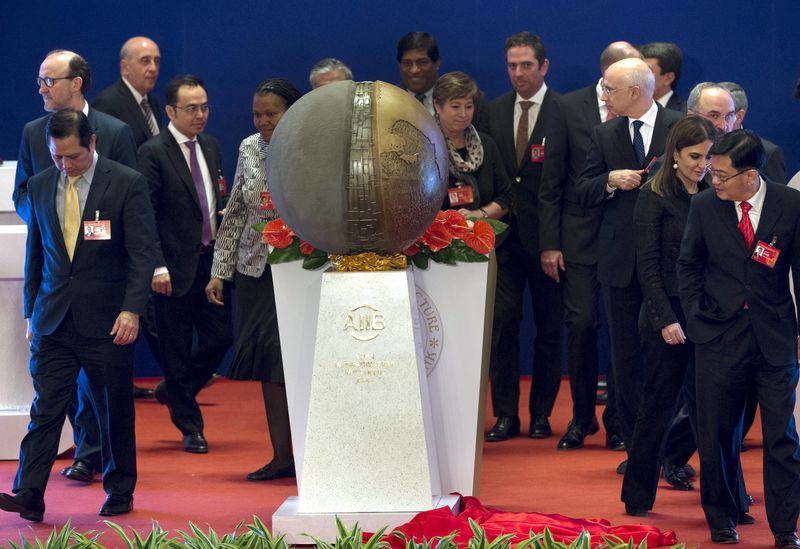By Sue-Lin Wong
BEIJING (Reuters) - Chinese President Xi Jinping launched a new international development bank seen as a rival to the U.S.-led World Bank at a lavish ceremony on Saturday, as Beijing seeks to change the unwritten rules of global development finance.
Despite opposition from Washington, U.S. allies including Australia, Britain, German, Italy, the Philippines and South Korea have agreed to join the Asian Infrastructure Investment Bank (AIIB) in recognition of China's growing economic clout.
"Asia's financing needs for basic infrastructure are absolutely enormous," Xi said in a speech at the launch, adding the bank would aim to invest in projects that were "high-quality, low-cost".
In order for Asia to continue to be the most dynamic region for global growth, it needs to invest in infrastructure and connectivity, Premier Li Keqiang said, during the afternoon session of the opening ceremony.
The AIIB is expected to lend $10 billion-$15 billion a year for the first five or six years and will start operations in the second quarter of 2016.
"We already have a very good pipeline of co-financing projects (with other international development banks) and stand alone projects," Jin Liqun, AIIB president, told journalists on Sunday, adding that while loans would be made in U.S. dollars, the bank may raise capital in other currencies including the euro and yuan.
DIPLOMATIC COUP
Luxembourg Finance Minister Pierre Gramegna said the establishment of the AIIB was "further proof of the rebalancing of the world economy".
A successful AIIB that sets itself apart from the World Bank and the International Monetary Fund (IMF) would be a diplomatic triumph for China, which opposes a global financial order it says is dominated by the United States and does not adequately represent developing nations.
The bank will have an internal department focused on compliance and integrity that reports directly to the bank's board, Jin said on Sunday.
Developing a good corporate culture that holds its staff to high standards was "far more important than just making loans," he said.
The AIIB will require projects to be legally transparent and protect social and environmental interests, but it will not force borrowers to adopt the kind of free-market practices favored by the IMF, sources have told Reuters.
By not insisting on some free market economic policies recommended by the World Bank, the AIIB is likely to avoid the criticism leveled against its rivals, which some say impose unreasonable demands on borrowers.
It could also help Beijing stamp its mark on a bank regarded by some in the government as a political as much as an economic project.
Thirty founding countries that hold over 74 percent of shares in the bank have ratified the AIIB agreement and the remaining countries have until the end of the year to complete the membership process, Jin said on Sunday.
Baikuntha Aryal, joint secretary at Nepal's Ministry of Finance, said the Himalayan country was hoping the AIIB would fund roads, hydropower and urban development projects.
"The AIIB is specifically for infrastructure so we see it as a supplement to projects in Nepal funded by the ADB (Asian Development Bank) and World Bank," he said.

China has an initial subscription of $29.78 billion in authorized capital stock in the AIIB, out of a total of $100 billion. It invested another $50 million on Saturday.